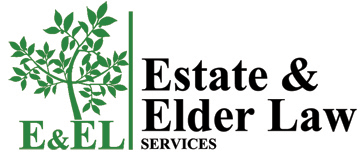February 2021 Newsletter

From The Certified Elder Law Attorney's Desk:
William W. “Bill” Erhart
It Is Too Late Baby
What do Wilson Pickett, Bobby Goldsboro, Marvin Gay, and Carole King all have in common? Other than being popular singers?
They all said it’s too late! But is it?
At Estate & Elder Law Services it is never too late to do something to improve someone’s life.
At Estate and Elder Law Services, we want to transform lives not let them stagnate.
In our Medicaid practice, people often come to us early to plan to mitigate the cost of long-term care, which can easily be $15,000 a month in New Castle County Delaware. A lot of our practice is protecting assets so that when people do need long-term care, everything they worked for so hard in their lives, is not exposed and lost and does not have to be spent in order to qualify someone for some extra help from the State.
When someone has to go into a nursing home or just needs some extra help in the home and they have not planned with us, they do not have to go broke. There are lots of things we can do to help people, even at the last minute. There are lots of exceptions to the harsh Medicaid rules, including transfers to persons with disabilities, purchasing or granting life estates in homes, spousal transfers (and we do not mean divorce). In the very worst-case, we can save half the assets for someone going into the nursing home or who just needs a little extra help around the home.
Several times clients have come to us with old trusts based upon old tax laws that had valuable assets locked-in them that were going to lose a significant capital gains tax advantage known as the step-up in basis because of not poor, but simply outdated planning. We helped in every single case by either legally transferring assets or modified trust terms so that the beneficiaries will get favorable tax treatment. Several times we have had cases where a husband died and left stocks in a credit shelter trust for his widow. At one time this was a common technique to avoid estate tax. However, the stocks were purchased at a low cost relative to their current market value and would lose the step-up in basis upon death of the surviving widow, causing the children to pay significant capital gains tax when they received their inheritance and then sold the stocks. Using various techniques such as decanting nonjudicial settlement agreements or filing petitions in court for trust reformation, we were able to save families hundreds of thousands of dollars.
In one case, a man had worked hard in his business for many years, but during the Great Recession, his business failed and he was on the verge of bankruptcy. He had significant debt. He also had five adult children. When his mother died, he was afraid he was going to lose everything she had worked so hard for to the debt collectors. He came to us in despair. We used a common postmortem technique known as disclaiming. Disclaiming is a procedure authorized by law whereby someone inheriting property from another may disclaim the property and have it pass to the next generation or next person in line. Creating, serving, and filing the appropriate disclaimer in the rate court and agencies permits a will or trust or the law to treat the disclaimant as if he was dead, and pass the property directly to the next generation. Although he was unable to enjoy the property his mother left him directly, his children and his mother’s grandchildren were able to enjoy it, which was the ultimate intent, that her family receive the results for long years of work and saving. And of course, he enjoyed it indirectly through his children.
Disclaimers are very tricky and technical. There are rules regarding timing, service of the disclaimer, and the appropriate court or office to file them in order for them to be effective. Also, there can be issues with the Fraudulent Conveyance Act. When used carefully and judiciously, it can be very effective in transforming the lives of families for the better which is our goal at Estate & Elder Law Services.
